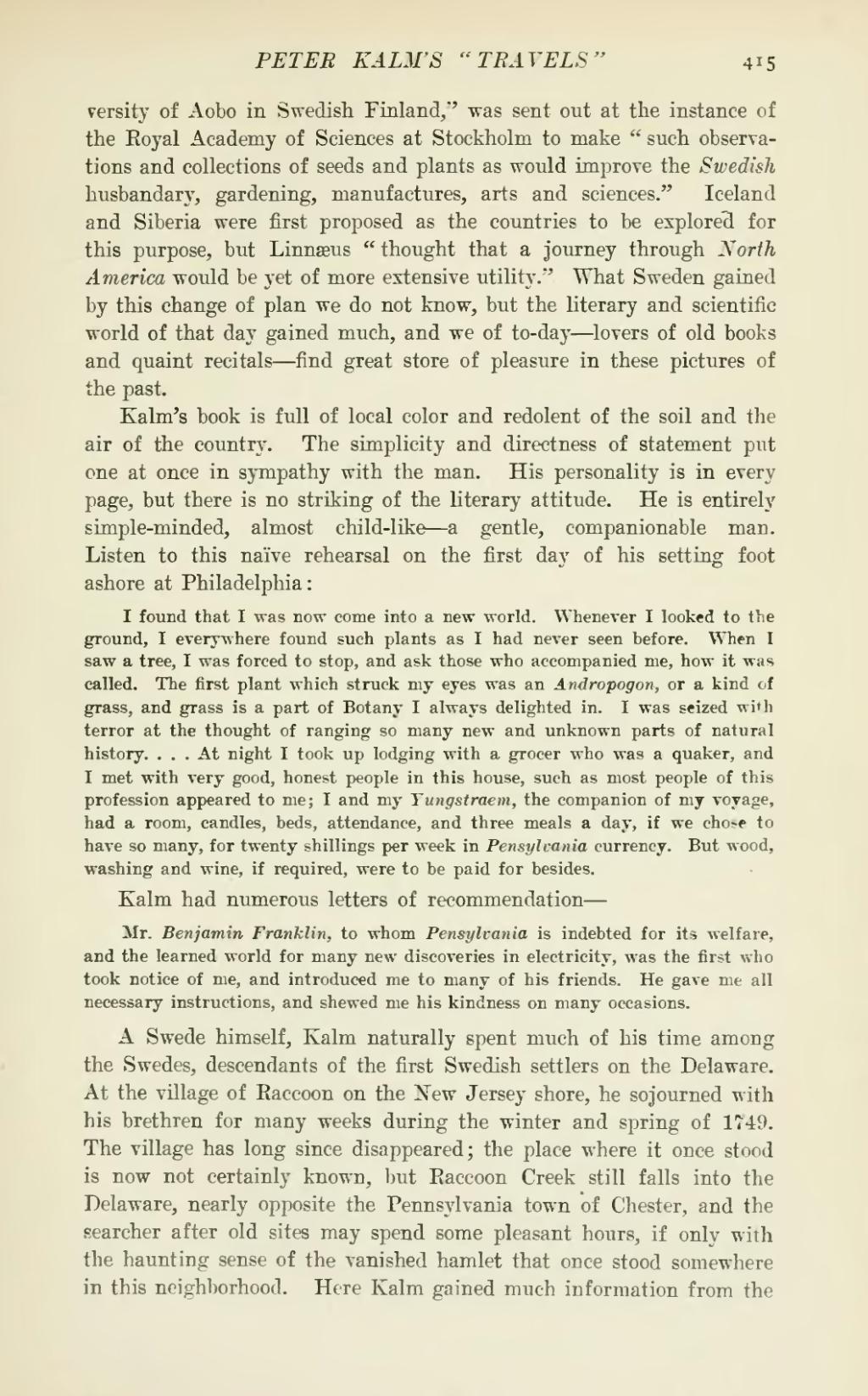versity of Aobo in Swedish Finland," was sent out at the instance of the Royal Academy of Sciences at Stockholm to make "such observations and collections of seeds and plants as would improve the Swedish husbandary, gardening, manufactures, arts and sciences." Iceland and Siberia were first proposed as the countries to be explored for this purpose, but Linnæus "thought that a journey through North America would be yet of more extensive utility." What Sweden gained by this change of plan we do not know, but the literary and scientific world of that day gained much, and we of to-day—lovers of old books and quaint recitals—find great store of pleasure in these pictures of the past.
Kalm's book is full of local color and redolent of the soil and the air of the country. The simplicity and directness of statement put one at once in sympathy with the man. His personality is in every page, but there is no striking of the literary attitude. He is entirely simple-minded, almost child-like—a gentle, companionable man. Listen to this naïve rehearsal on the first day of his setting foot ashore at Philadelphia:
Kalm had numerous letters of recommendation—
A Swede himself, Kalm naturally spent much of his time among the Swedes, descendants of the first Swedish settlers on the Delaware. At the village of Raccoon on the New Jersey shore, he sojourned with his brethren for many weeks during the winter and spring of 1749. The village has long since disappeared; the place where it once stood is now not certainly known, but Raccoon Creek still falls into the Delaware, nearly opposite the Pennsylvania town of Chester, and the searcher after old sites may spend some pleasant hours, if only with the haunting sense of the vanished hamlet that once stood somewhere in this neighborhood. Here Kalm gained much information from the
